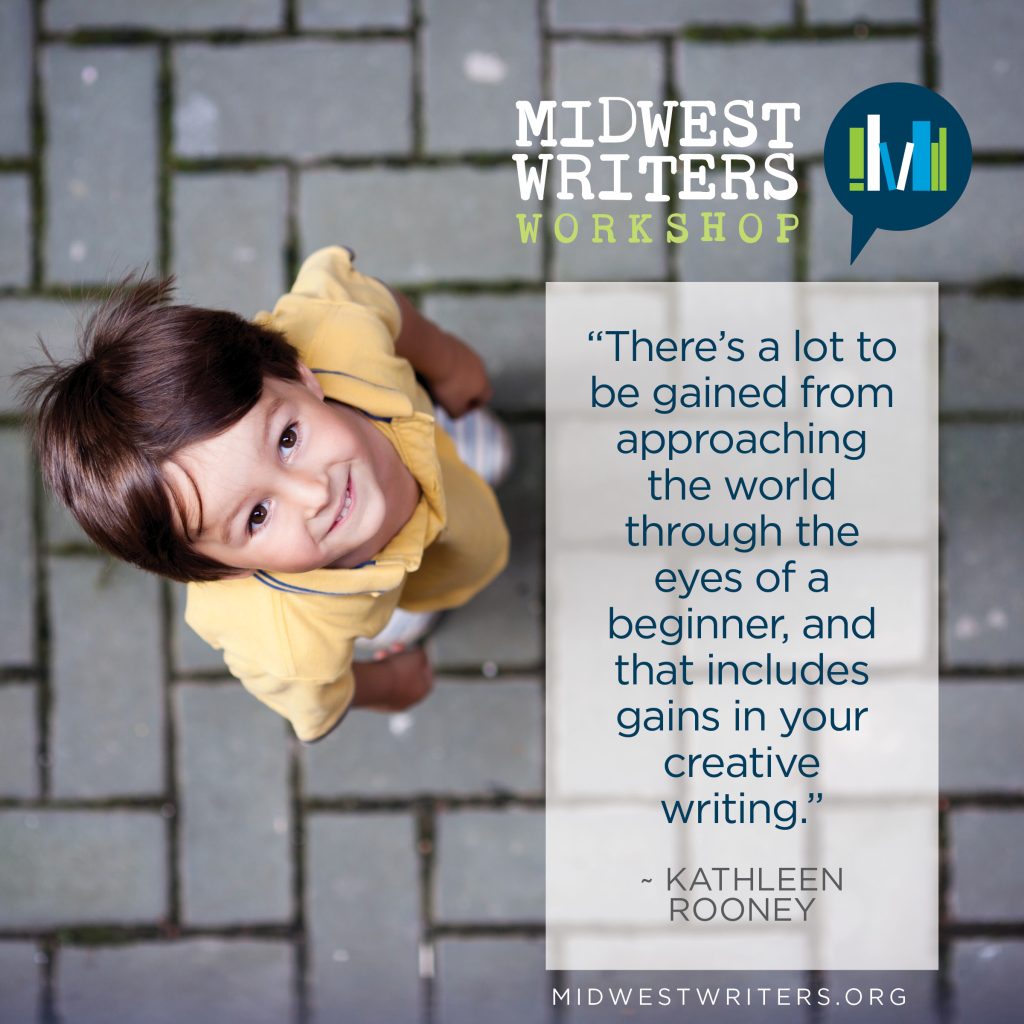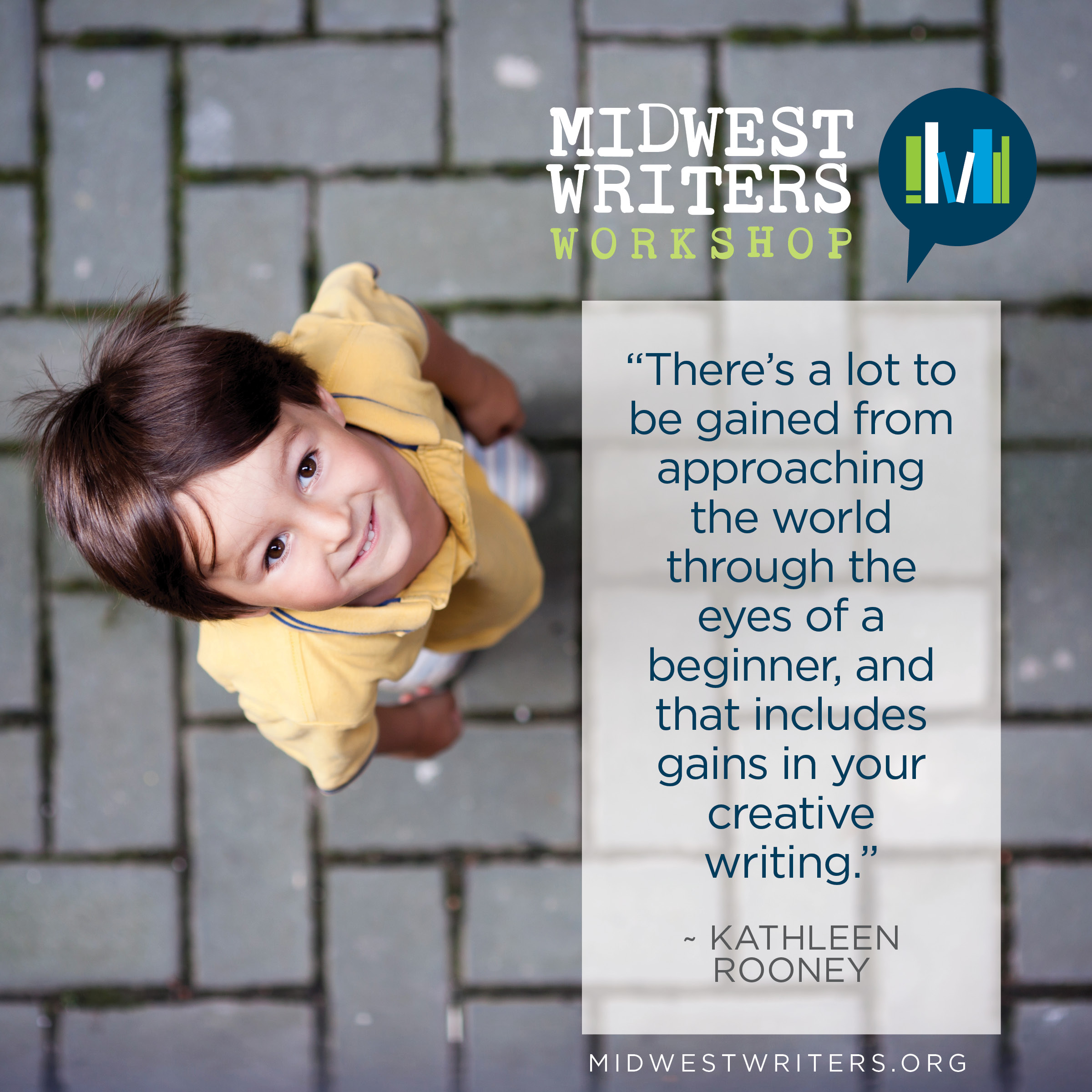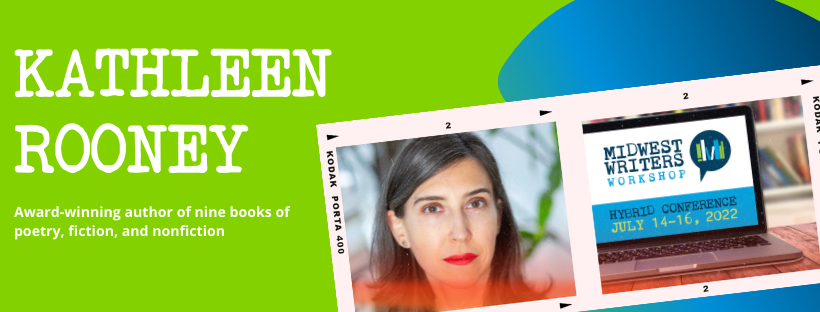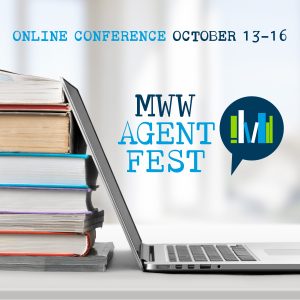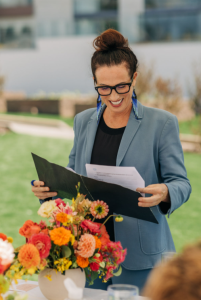Kathleen Rooney is award-winning author of nine books of poetry, fiction, and nonfiction, including the memoir Live Nude Girl: My Life as an Object. She is a founding editor of Rose Metal Press, a nonprofit publisher of literary work in hybrid genres, as well as a founding member of Poems While You Wait, a collective of poets and their typewriters who compose poetry on demand. The author of the national best-seller Lillian Boxfish Takes a Walk (St. Martin’s Press 2017), her most recent novel is Cher Ami and Major Whittlesey (Penguin, 2020) and her latest poetry collection Where Are the Snows will be published by Texas Review Press in Fall of 2022. She lives in Chicago with her spouse, the writer Martin Seay, and teaches at DePaul.
Find out more at https://kathleenrooney.com/
During MWW22, Kathleen will teach the sessions “Poetry: Send in the Clowns” and “Memoir Writing Through Innocence and Experience,” and serve as a panel member for “Wearing Many Hats: How to Balance Your Regular Life and Your Writing Life.”
Leah Lederman, MWW publicity chair, asked Kathleen Rooney some questions about her upcoming sessions. She had a lot of helpful advice about writing across genres, and ways to be in writing memoir.
Hopefully you enjoy this interview as much as we did!
MWW: Novels, poetry, memoir, and hybrid genres–you wear a lot of writing hats! What can writers learn by stretching themselves into new genres and media, and what advice do you have for writers venturing into new territories?
KR: There’s a lot to be gained from approaching the world through the eyes of a beginner, and that includes gains in your creative writing. When you’re branching out from what you see as your usual genre as a writer, the best advice I have is not to pass any judgments in advance if you can help it (like “I’m bad at poetry” or “I can’t be funny” or “I should just stick to fiction” or what have you) and let yourself have a beginner’s mind and see what happens as it happens.
MWW: How do you decide what medium is best suited for your topic? What makes one subject a poem and another a novel, for instance? Building on that, how does your process differ based on what you’re writing?
KR: In my own writing, the genre is often settled by questions of length and depth–if I feel like I want to be more aphoristic or evoke a particular idea or mood, I know it’s a poem. If I want to stretch out and digress and bring in a lot of other voices, I can tell it’s an essay or nonfiction prose piece. If I really want to explore a voice or character, then I can tell I need the expansiveness of a novel.
MWW: I’m a big fan of Rose Metal Press and love your books on craft. For a writer seeking to improve their work, do you recommend reading books on craft over reading books in their chosen genre, or—since we’ve discussed stretching into new genres—simply reading anything they can get their hands on? Is there a golden ratio?
KR: Thank you! No matter what a writer is writing, good input is key to good output, so I think reading as much as possible in terms of both examples of the genre you want to write in and craft books is the way to go. If you are the kind of person who can read multiple books at the same time, going from one to the other, I recommend that, but if not, you can always just alternate one complete book after the other. Also, reading periodicals and magazines both in print and online is a wise move because even if those things are not exactly featuring what you personally are attempting to write, you’ll be surprised at what you pick up anyway.
MWW: In The Art of Memoir, Mary Karr writes, “You think you know the story so well. It’s a mansion inside your head, each room just waiting to be described, but pretty much every memoirist I’ve ever talked to finds the walls of such rooms changing shape around her. There are shattering earthquakes, tectonic-plate-type shifts. Or it’s like memory is a snow globe that invariably gets shaken so as to shroud the events inside.” Can you talk about a time in your writing where you encountered a memory-situation like this, and how you worked through it?
KR: There’s this saying that gets attributed to all kinds of luminaries from E.M. Forster to Andre Gide, that’s something like “How can I know what I think until I see what I say?” and for me, those are the shifts and shakings that hit me most often when I’m writing nonfiction. I have what I consider to be a pretty good memory, so in my experience it’s less that the memory itself gets changed or shrouded and more that the way I feel and think about it or the way I fit it into the bigger narrative of who I am or what I’ve become feels slippery. In fact, that need to judge and categorize and explain is part of why I write essays and memoirs–I need to process my understanding of things that have happened and to figure out how I need to frame them in order to integrate and share and make sense of those events.
MWW: We’ve heard about trusting the reader, but how can we trust that we’ve given the reader enough information to draw their own conclusions? Do we have any control over whether they reach the conclusions we’ve intended?
KR: When I’m teaching, one of my favorite things to say is that “whatever else it is, a piece of writing is also a set of instructions for how it is to be read.” I believe that we have a lot of power over the way we present our stories and ideas, and we can use that power to push our readers to see what we want them to see and to arrive at the takeaways we hope they’ll take away. But power is different than control, so of course we can never control a reader’s reactions completely. But that’s kind of exciting–seeing what a given reader will do with your work.
MWW: What’s your favorite takeaway from the session you’ll be teaching?
KR: For my poetry class, my favorite takeaway is that a little bit–or a lot–of comedy and humor can make the other emotions you want to include pop. For my memoir class, my favorite takeaway is that life is less about “being” yourself than it is “becoming” yourself and if you cultivate the ability to shuffle back through your various previous selves, you’ll be a more sophisticated writer.
MWW: As a writer, what would you choose as your mascot/avatar?
KR: A dolphin–playing around, having fun, and showing off a little.
There are takeaways for everyone, no matter your genre.
MWW22 is an important opportunity for you to network with others and build a writing community for yourself.

